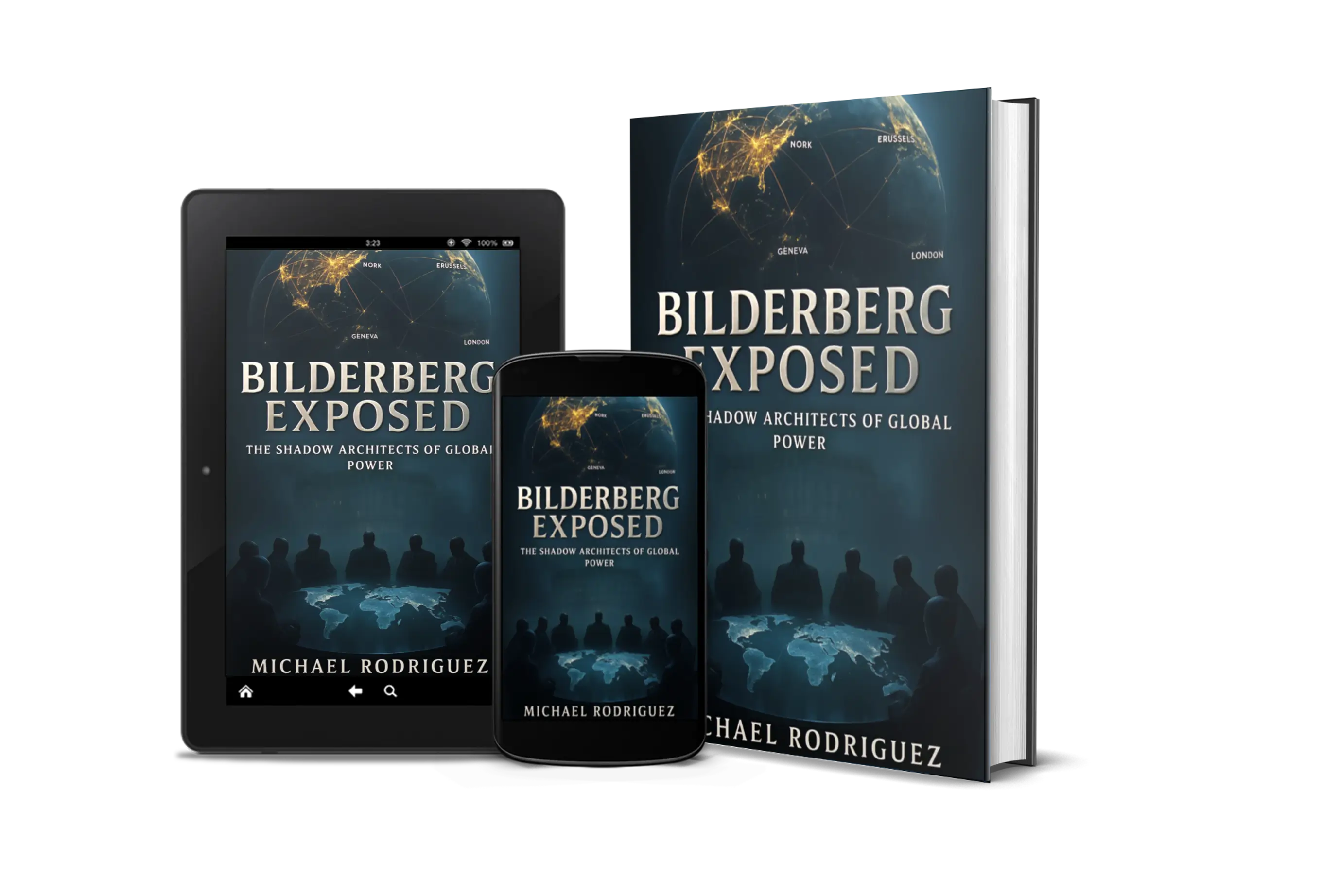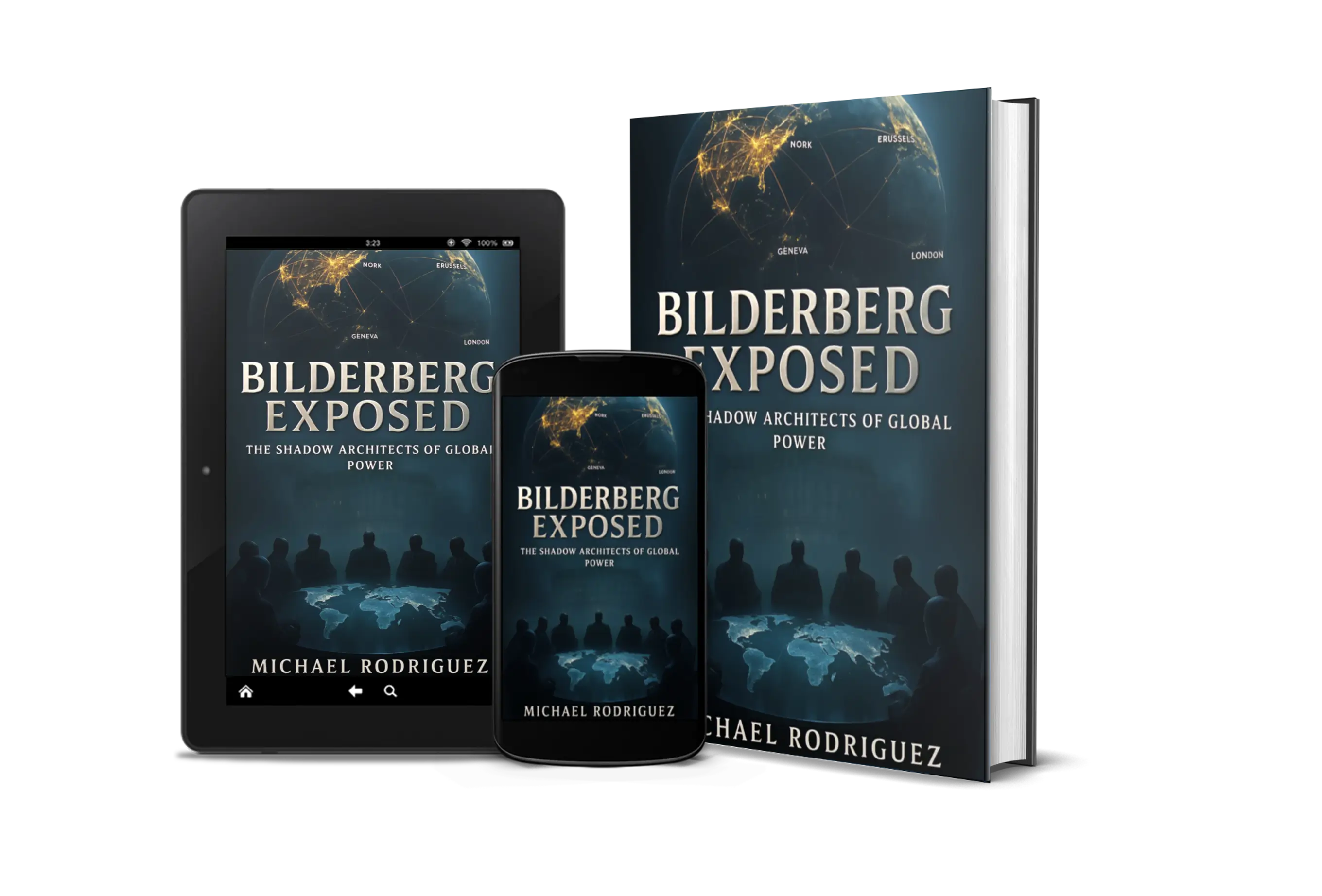Inside the Bilderberg Forum: What Really Happens Behind Closed Doors
Published on August 31, 2025

At exactly 6:00 PM on May 30, 2024, in a luxury hotel in Madrid, 150 of the world's most powerful individuals gathered in a conference room where no recording devices were permitted, no staff were allowed entry during sessions, and no minutes would ever be taken. What happened over the next 72 hours would influence policy decisions affecting billions of people, yet not a single word of the actual discussions would ever appear in any official record. This is the reality of the Bilderberg Forum—the most influential conversation you'll never hear, conducted by people whose decisions shape your world whether you know it or not. Welcome to the hidden architecture of global power, where democracy takes a backseat to expert coordination and public accountability is deliberately excluded by design.
The Forum's Unique Discussion Format: How Elite Consensus Is Actually Built
Unlike public conferences where participants perform for cameras and audiences, the Bilderberg Forum operates as an intensive three-day seminar designed for genuine dialogue and consensus-building among global elites. Understanding this format is crucial for grasping why the forum wields such remarkable influence.
The Session Structure: Each day features 3-4 discussion sessions, with participants divided into groups of 15-20 people. Topics are carefully selected to address what organizers see as the most pressing challenges to Western-dominated global order. Recent sessions have included:
- "Artificial Intelligence and Human Agency" - featuring CEOs of Google DeepMind, Anthropic, and Microsoft AI
- "China's Economic Model and Western Response" - with treasury ministers, central bankers, and tech executives
- "The Future of Democratic Governance" - including prime ministers, media owners, and platform leaders
- "Climate Transition and Economic Stability" - with energy executives, environmental ministers, and financial regulators
The Chatham House Rule in Practice: This isn't just about privacy—it's about creating a unique psychological environment where participants can speak without public accountability. A tech executive can discuss platform censorship strategies, a prime minister can reveal true economic concerns, and a central banker can explain monetary policy intentions—all without fear of immediate political consequences.
Why This Format Works: Over three intensive days, people who might be competitors or adversaries in other contexts develop personal relationships and shared understanding. The isolation from normal communication channels creates a bonding experience that transcends individual institutional interests.
What Topics Are Actually Discussed: The 2024 Agenda Revealed
Based on participant accounts and documented evidence from my research for Bilderberg Exposed: The Shadow Architects of Global Power, here's what was actually debated at the most recent forum:
Session 1: "Artificial Intelligence as Infrastructure"
Participants discussed treating AI systems like public utilities, with coordination between major tech companies and governments. The focus wasn't on competition but on managing AI development to maintain Western technological dominance while preventing "chaotic" public interference with expert decision-making.
Session 2: "Managing Democratic Pushback"
This session addressed what participants see as the "populist problem"—rising voter resistance to globalization and expert governance. Discussions covered information management strategies, platform policies for "misinformation," and methods for maintaining public support for international institutions.
Session 3: "The China Challenge"
Not about military conflict, but about economic competition and technological coordination. How can Western institutions adapt to multipolarity while maintaining their privileged position? What coordination is needed between governments, tech companies, and financial institutions?
Session 4: "Climate Governance Without Democracy"
Perhaps the most revealing session: how to implement rapid climate transitions without being slowed by democratic processes. Participants discussed carbon pricing mechanisms, energy transition financing, and public acceptance strategies for policies that will significantly impact living standards.
Session 5: "The Future of Money and Control"
Central bank digital currencies, cryptocurrency regulation, and financial system control. How to maintain monetary policy effectiveness while adapting to technological change. The discussion revealed plans for coordinated digital currency policies across Western nations.
How Forum Discussions Transform Into Global Policy
The Bilderberg Forum's true power lies not in formal decisions—none are made—but in its ability to create coordinated understanding among people who return to positions where they can implement actual policies.
The Transmission Mechanism:
- Immediate Coordination: Participants exchange contact information and establish ongoing communication channels
- Policy Templates: Shared frameworks developed at the forum become blueprints for national and international policies
- Personnel Networks: Forum connections influence appointments to key positions in international organizations
- Information Sharing: Participants coordinate responses to crises and opportunities using relationships built at the forum
Recent Examples of Forum-to-Policy Translation:
Pandemic Response Coordination: The rapid, synchronized response to COVID-19 across Western nations reflected frameworks developed at 2017-2019 Bilderberg Forums, where "pandemic preparedness" was a recurring topic. When the crisis arrived, response mechanisms were already conceptually developed.
Big Tech Platform Policies: The remarkable similarity in content moderation policies across different platforms during 2020-2021 reflected discussions at previous forums where tech executives and government officials developed shared understanding of "information integrity" requirements.
Climate Policy Coordination: The synchronized emergence of net-zero commitments, carbon pricing mechanisms, and green finance initiatives across different countries followed years of climate discussions at Bilderberg Forums.
The Psychology of Elite Forum Discussions: Why Consensus Emerges
Understanding why the Bilderberg Forum produces such remarkable consensus requires examining the psychological dynamics of elite interaction in isolated, high-stakes environments.
The Isolation Effect: Participants are removed from their normal support systems, advisors, and communication channels. This creates psychological pressure to rely on relationships formed within the forum, intensifying the bonding experience.
The Expertise Trap: Everyone present has achieved extraordinary success in their respective fields, creating mutual respect that overrides normal competitive instincts. This shared elite identity becomes stronger than institutional or national loyalties.
The Crisis Framework: Sessions are structured around shared challenges that require coordinated responses. This creates a problem-solving dynamic that emphasizes collaboration over competition.
The Information Advantage: Access to privileged information creates a sense of shared responsibility among those "who know what's really happening." This reinforces the group's sense of authority to make decisions affecting others who lack this information.
Forum Participants: The Modern Architects of Global Governance
Who actually attends these forums, and how are they selected? The composition reveals the forum's true purpose as a coordination mechanism for Western-dominated global governance.
The Political Third: Approximately 50 participants from government positions—prime ministers, cabinet ministers, central bank governors, EU commissioners, NATO officials. These are people who can directly implement policies discussed at the forum.
The Corporate Third: About 50 participants from major corporations—CEOs of multinationals, banking executives, tech industry leaders, energy company heads. These control the private infrastructure that government policies must coordinate with.
The Expert Third: Approximately 50 participants from academia, think tanks, international organizations, and media. These provide intellectual frameworks and public communication strategies for policies developed through forum discussions.
The Selection Process: The Steering Committee, representing 18 countries, curates participants based on their ability to influence policy in their respective domains. This isn't about individual brilliance but about institutional position and network connections.
Geographic Balance: Two-thirds European, one-third North American, with occasional participants from other regions. This reflects the forum's focus on coordinating policy within the Western alliance rather than truly global governance.
The Digital Age Transformation: How Forums Adapt to New Realities
The Bilderberg Forum has evolved significantly as digital technology transforms both the challenges it addresses and the methods it uses for coordination.
New Participant Categories: Tech industry leaders now represent about 15% of participants, reflecting their role as controllers of digital infrastructure that governments must coordinate with. Platform CEOs aren't just business executives—they're infrastructure managers for modern society.
Information Management Focus: Discussions increasingly focus on what information the public should access and how to maintain "expertise authority" in an era where alternative information sources challenge official narratives.
Coordination Technology: While forum meetings remain face-to-face, participants now maintain ongoing digital coordination through secure communication channels established during meetings.
Crisis Response Capabilities: The forum has developed rapid response mechanisms for coordinating elite reaction to unexpected events, as demonstrated during the 2020 pandemic and various geopolitical crises.
The Forum's Role in Managing Global Crises
Perhaps the most revealing aspect of Bilderberg Forum operations is how it functions during major global disruptions. The forum serves as a crisis coordination mechanism for Western elites, enabling rapid, synchronized responses that bypass normal democratic processes.
The 2008 Financial Crisis: While the public narrative focused on regulatory failures and market unpredictability, the actual response was coordinated through networks established at previous forums. The speed with which similar policies emerged across different countries reflected pre-existing coordination mechanisms.
The 2020 Pandemic: Content moderation policies, economic support mechanisms, and public health responses showed remarkable synchronization across Western nations. This reflected not just shared challenges but coordinated planning through elite networks.
The Ukraine Conflict: Sanctions packages, military aid coordination, and information management strategies emerged through Western nations with impressive speed and coordination. This reflects the forum's role in maintaining Western alliance cohesion during crises.
What This Means for Democratic Governance
The Bilderberg Forum raises fundamental questions about the relationship between democratic accountability and effective governance in complex, interconnected systems.
The Efficiency Argument: Supporters argue that informal coordination prevents chaos and enables effective problem-solving on global challenges that require rapid, coordinated responses across multiple countries and institutions.
The Democracy Deficit: Critics point out that major policy directions are being developed outside democratic oversight, with public participation reduced to ratifying decisions made by unelected elites in private forums.
The Expertise Problem: The forum embodies tensions between democratic equality and expert knowledge—should complex global challenges be managed by those with specialized knowledge or through democratic participation by those affected by the outcomes?
The Accountability Question: When policies emerge simultaneously across different countries through informal coordination, what mechanisms exist for democratic oversight or course correction?
Join the Discussion: Your Voice in Global Governance
Understanding the Bilderberg Forum isn't about accepting or rejecting conspiracy theories—it's about recognizing how power actually operates in our interconnected world and demanding more democratic participation in decisions affecting our lives.
What You Can Do:
- Stay Informed: Learn about these networks and their influence on policy decisions
- Demand Transparency: Ask political leaders about their participation in private policy forums
- Support Democratic Institutions: Strengthen mechanisms for public participation in global governance
- Engage Critically: Question policies that emerge simultaneously across different countries without public debate
The forum discussions continue, but now you know where to look for them. The shadow architects of global power operate in plain sight—the question is whether citizens will develop sufficient knowledge and engagement to influence their decisions toward more democratic and accountable directions.
For those seeking deeper understanding of how these networks actually operate and what they mean for the future of democratic governance, Bilderberg Exposed: The Shadow Architects of Global Power provides unprecedented insight into seven decades of elite coordination and its impact on global governance systems.
---Available Now
📘 ISBN: 979-8231195947 (Hardcover) | 979-8230998600 (eBook)
Published: June 2025 | Resource Economics Press
